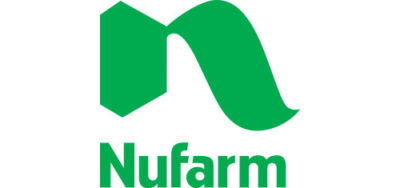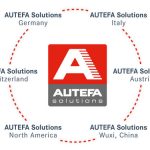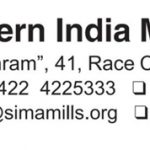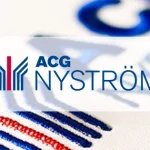Pentia Plant Regulator (mepiquat pentaborate), the next generation plant regulator, was introduced into the cotton market in 2003 by BASF Corporation. Pentia brings high value to a cotton grower in many ways including: improved uptake and rainfastness, enhanced height management, improved boll set & retention, increased earliness and maximizes yield potential.
 Morrisville, NC – Nufarm Americas, Inc. is pleased to announce the addition of Pentia® Plant Regulator to its expanding portfolio of performance-driven cotton solutions. Acquired from BASF, Pentia will be offered exclusively by Nufarm for the 2021 crop year and beyond.
Morrisville, NC – Nufarm Americas, Inc. is pleased to announce the addition of Pentia® Plant Regulator to its expanding portfolio of performance-driven cotton solutions. Acquired from BASF, Pentia will be offered exclusively by Nufarm for the 2021 crop year and beyond.
Pentia offers a track record of performance in maximizing cotton yield. Cotton growers investing in greater crop potential often turn to Pentia for improved plant uptake, rainfastness, height management, boll retention, earliness and yield potential. Pentia supports better fruit retention and height-to-node ratio as well.
“The faster absorption of Pentia vs traditional, unenhanced mepiquat has benefited cotton growers for several years,” said Chris Bowley, Nufarm Customer and Brand Marketing Manager. “Growers are able to increase boll set, harvest earlier and improve yield with the Pentia formulation – and Nufarm is pleased to add this well-known and trusted brand to our cotton enhancement portfolio.”
Pentia joins Nufarm’s growing lineup of enhanced cotton products, including Terminate® Cotton Harvest Aid and CutOut® Cotton Defoliant. For information about all of the crop protection solutions available from Nufarm, visit nufarm.com/uscrop.
Brief Note On Cotton Cultivation and Plant Growth Regulators
Cotton is a perennial plant, which, however, is cultivated in most countries in an annual cycle. In its native habitat, cotton plants do not die in the autumn, but continue to grow until environmental conditions become too restrictive. Another growth characteristic associated with its perennial nature is its indeterminate fruiting habit. Rather than flowering during a distinct period following vegetative growth, cotton plants simultaneously produce vegetative and fruiting structures. In order to enable high yield and quality formation and to allow efficient mechanical harvesting, intense usage of PGRs (Plant Growth Regulators) has become a standard practice in many cotton‐producing countries. The regime typically comprises control of vegetative growth by mepiquat‐containing products, defoliation by thidiazuron and boll‐opening by ethephon.
The growth‐regulator mepiquat pentaborate was commercially introduced for vegetative growth control in cotton in the US market in 2003. Due to its rapid uptake and the nutritive value of the contained boron, the pentaborate form of mepiquat leads to better plant performance under distinct growing conditions as compared to its chloride salt (Mepiquat chloride)
Plant Growth Regulators Used in Cotton Production
| Crop species | Use | Active ingredient(s) | Main trade name(s) | Main producer(s) and/or supplier(s) |
| Cotton | Management of shoot growth Earlier harvesting Improved fibre quality | Mepiquat chloride | Pix® | BASF/Arysta LifeScience |
| Mepiquat chloride + Kinetin | Mepex® Gin Out | Nufarm | ||
| Mepiquat chloride + Cyclanilide | Stance® | Bayer CropScience | ||
| Mepiquat pentaborate | Pentia® | BASF |
Treatment of cotton plants with mepiquat starting at the beginning of flowering reduces the intensity of new growth and, thereby, improves the sink strength of the first six to ten fruiting branches. This is of great importance because the bolls retained in this part of the plant will give the highest and earliest yields. The shifting of assimilates into the older fruiting structures is at the expense of younger fruits, which the plant is continuously forming, even late in the season and which are unlikely to contribute to yield at mechanical harvesting. Plants treated with mepiquat pentaborate produce higher yields and can, typically, be harvested three to ten days earlier than untreated plants. Earliness is of great importance because harvesting can often be performed prior to periods of rainfall. This would also reduce the incidence of fungal diseases. Further benefits from short‐season production may result from savings in late‐season irrigation and insecticide costs.
About Nufarm
Established in Australia more than 100 years ago, Nufarm is recognized as one of the leading manufacturers and suppliers of crop protection and seed treatment in the world. In the US, Nufarm is committed to bringing innovation and choice to distributors, retailers and the growers they serve from three state-of-the-art manufacturing facilities located to serve the North American channel with planning and precision.
Nufarm Americas, Inc. is a subsidiary of Nufarm Limited, a manufacturer, supplier and marketer of crop protection products based in Australia. Nufarm is recognized as one of the leading agricultural and turf chemical manufacturers in the world. Nufarm Americas, Inc. formulates products that serve the agricultural, professional turf, vegetation management and forestry markets in the United States.
(With inputs from various scientific researches)





